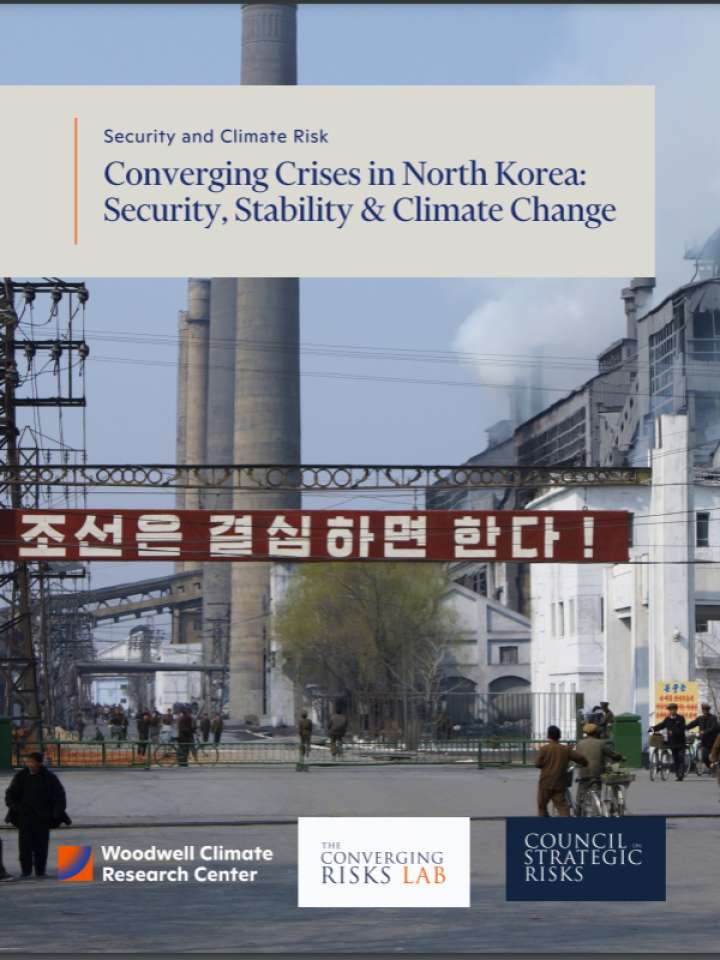Converging crises in North Korea: Security, stability & climate change
This report, part of a series looking at the nexus between climate change and security in and between nuclear-armed states, surveys major climate effects in North Korea, with regard to how they may influence the stability of the Kim regime and regional dynamics. Climate change has the capacity to further compromise North Korea's already precarious ability to provide public goods for its population and thus maintain regime stability, multiplying threats for the Korean peninsula and the entire region.
Much work in understanding and mapping the climate impacts that North Korea will face in the coming decades remains to be done. Opportunities for the United States and allies in the Indo-Pacific region are currently limited, but more options may be illuminated by granular research. A near-term opportunity is to work to restore NGO access, which has been severely curtailed since the coronavirus pandemic in 2020. NGOs likely will play a crucial role both in providing local observations and in coordinating relief efforts. A longer-term proposal could center on building a regional climate forum to address climate impacts on the Korean Peninsula. A forum dedicated to this issue could provide an opportunity for joint future research and cooperative monitoring of climate impacts as well as a venue for differentiating climate-related disruptions from intentional military actions in times of heightened tensions.
Explore further
